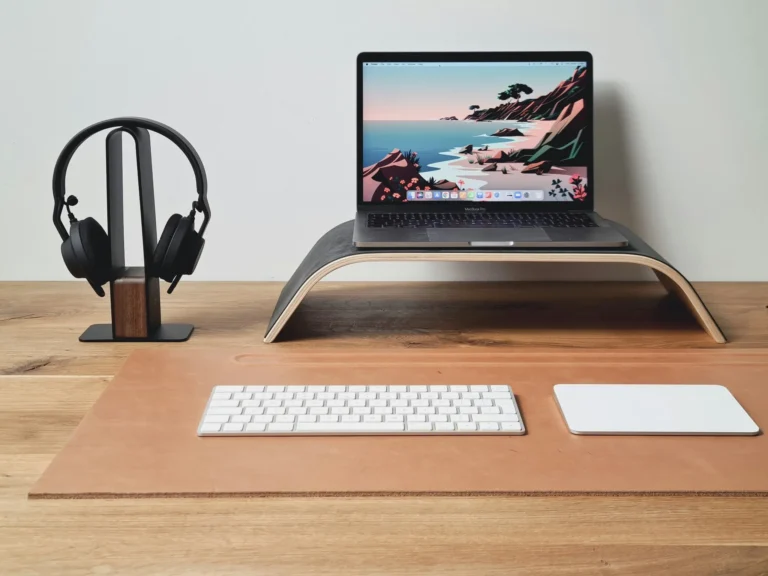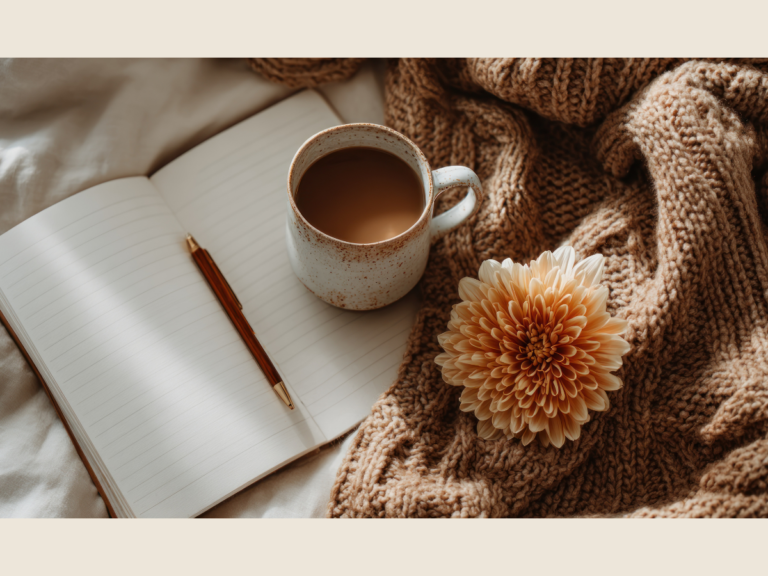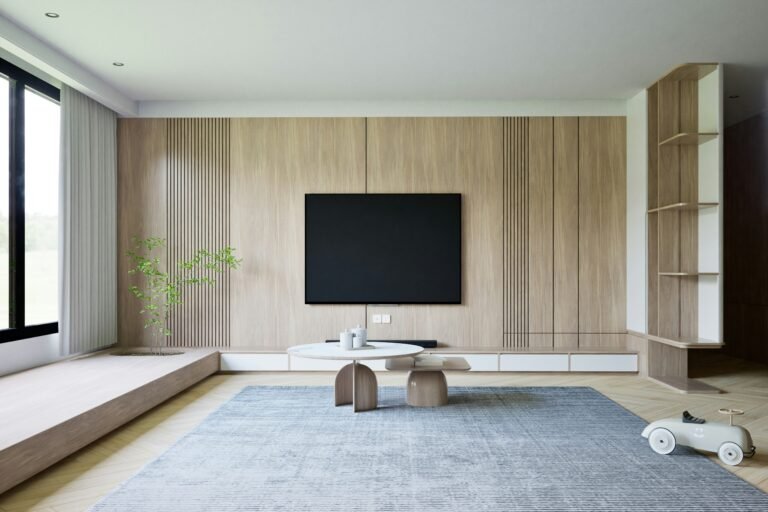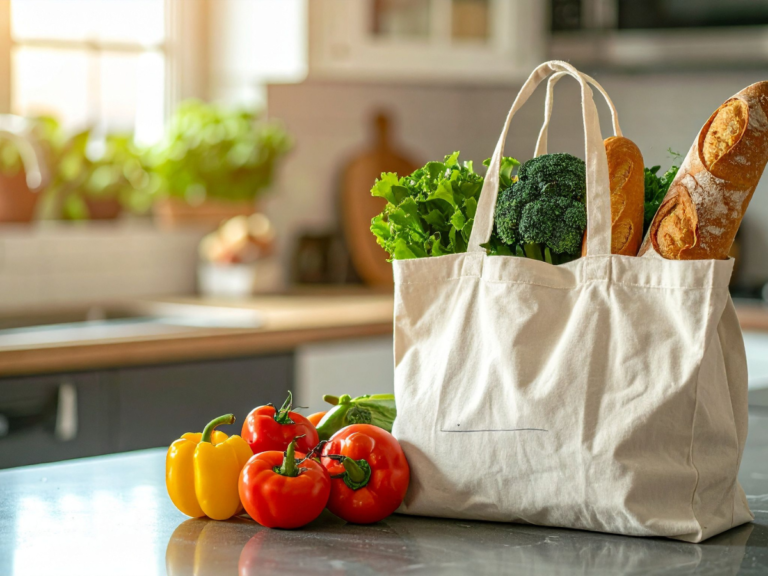✨ Minimalist Living in 2025: Own Less, Save More (Room-by-Room Guide)
Introduction
It started with a single drawer.
One quiet Sunday, I decided to tackle the mess next to my desk — half-dead pens, tangled cables, receipts from 2019. It took 30 minutes. But somehow, that one drawer changed everything.
For the first time, my evenings felt lighter. I spent less time cleaning, less time deciding, and even less money replacing things I’d forgotten I already owned.
That’s when I realized minimalist living isn’t about perfection or plain walls. It’s about designing a life that gives you space to breathe — and spend with intention.
This is why a simple lifestyle feels like breathing room in a busy week.
In 2025, owning less isn’t just an aesthetic choice; it’s an economic advantage. Rising rent, higher utilities, and nonstop digital noise mean every extra item has a hidden cost.
When you practice minimalist living, you spend on purpose and enjoy your space more.
Minimalism gives you back the two things most people feel short on: time and peace.
And yes — a simpler home quietly leads to smarter finances, too.
💡 If you want to see how financial habits connect to simplicity, check out Minimalist Money: How Minimalism Helps You Save and Build Wealth.
1️⃣ The Hidden Tax of Stuff
Most of us think clutter is just messy. But it’s actually expensive — in rent, in time, and in mental energy.
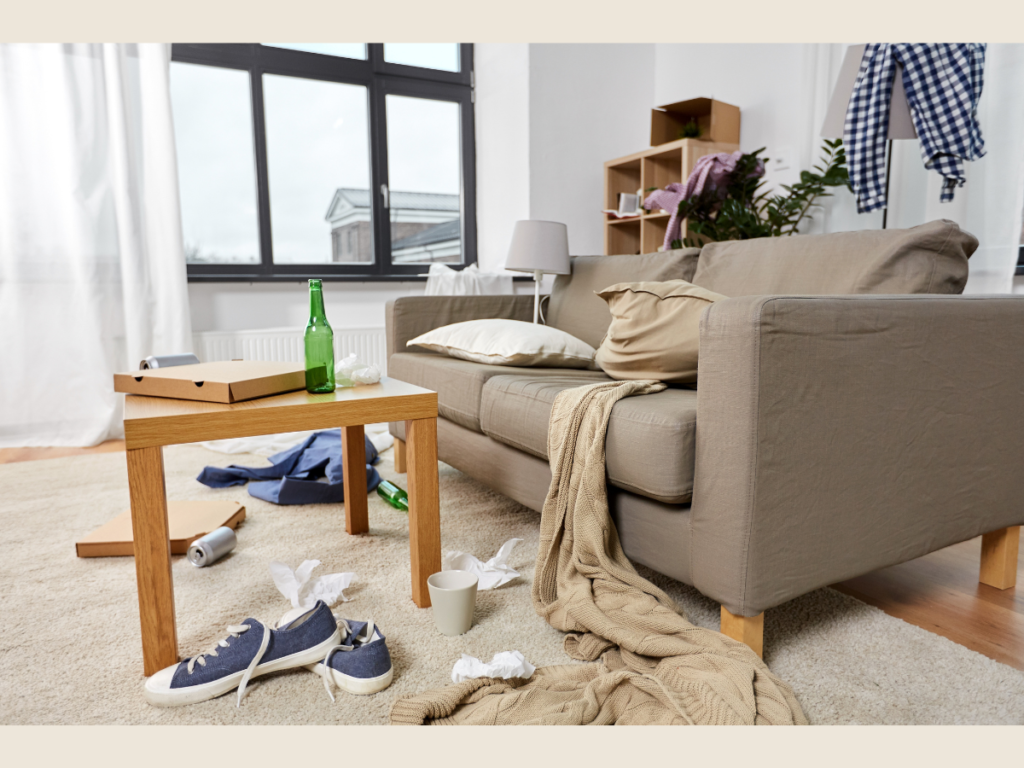
Here’s what “too much stuff” really costs the average household each year:
| Hidden Cost | Example | Estimated Annual Cost |
|---|---|---|
| Lost items / duplicate buys | Buying another phone charger you already own | $100–$300 |
| Storage space | Paying for extra square footage or a storage unit | $150–$400 |
| Cleaning time | 15 minutes a day × 365 | ~90 hours of your life |
💬 I once timed how long it took me to clean our living room — 45 minutes. After removing half the decor and unused furniture, it dropped to 18. That’s two extra hours every weekend — 100+ hours a year.
That’s the hidden tax of stuff — time and money spent maintaining things that don’t make your life better.
The hidden tax disappears fast when living with less becomes your default at home.
The University of Utah Extension reports that removing or controlling clutter helps reduce stress and boosts mood, focus, and confidence—essential benefits of mindful living space design.
💡 Quick Tip: Try a “Time Audit”. Track three days of cleaning, searching, or tidying. You’ll be shocked at how much clutter costs you.
⚠️ Common Mistake
Many beginners think minimalism is about organizing better.
But organizing clutter just makes it look prettier — it doesn’t make it lighter.
If you’re stacking boxes to hide what you don’t use, you’re paying rent for stress.
Start stripping the pile, not styling it—this is the heart of minimalist living.
For a step-by-step system to simplify home upkeep, see The Frugal Home: DIY Fixes and Upgrades That Save You Money. It pairs perfectly with this guide.
2️⃣ Capsule Zones: Simplify Your Space, One Room at a Time
You’ve heard of a capsule wardrobe — but what if you built a capsule home?
A capsule home is a house designed to work with fewer, better essentials.
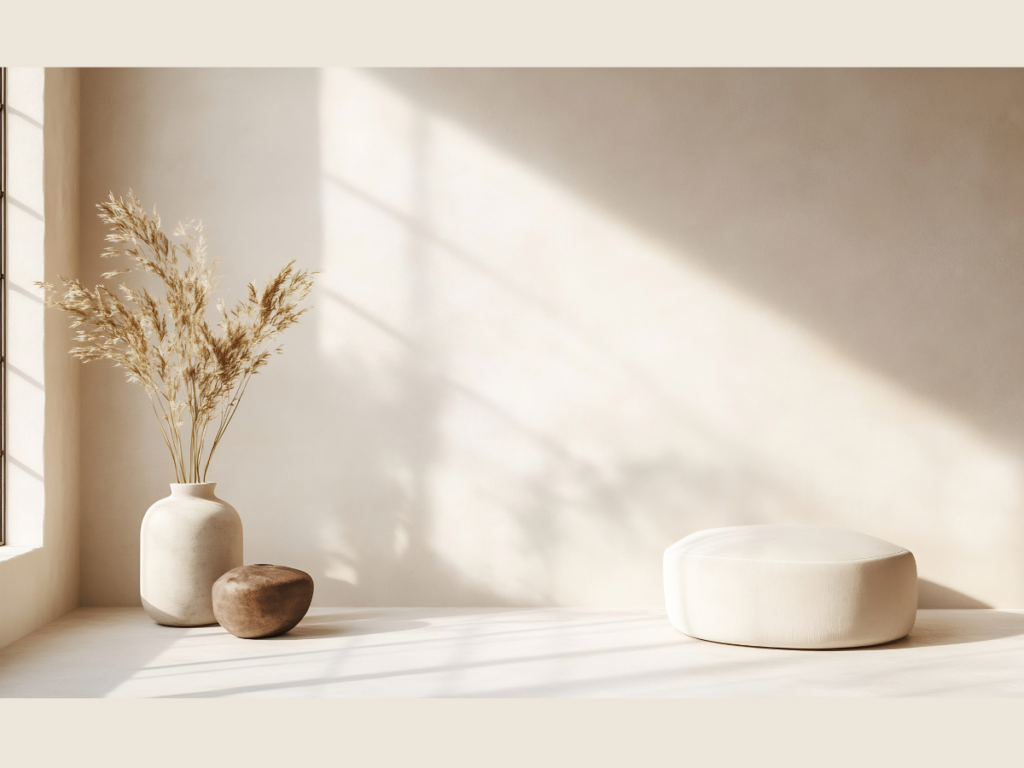
Instead of matching color palettes, focus on function per room.
Each space should do its job efficiently with the fewest items possible.
The Royal Australian College of General Practitioners notes that excessive clutter can heighten anxiety, reduce focus, and even interfere with sleep—strong reminders that minimalism supports both mental and physical health.
🏡 Living Room – The Clarity Zone
Keep: one sofa, one table, one focal point (a photo, a plant, or a bookshelf).
Remove décor that competes for attention. A quiet wall often feels more expensive than any gallery setup.
💬 A reader from Seattle told me she cleared two shelves of knick-knacks, then realized she’d stopped feeling “visually tired” after work. Her living room became a place to rest, not dust.
💡 Quick Tip: If you wouldn’t notice it missing for a week, you probably don’t need it.
🍳 Kitchen – The Efficiency Zone
The average U.S. household owns over 40 kitchen gadgets — yet uses fewer than 15 weekly.
Keep: essentials like a good knife, cutting board, 3 pots, and one quality skillet.
Declutter duplicates — you don’t need five spatulas or a mini donut maker you used once.
A capsule home kitchen favors durable tools over trendy gadgets.
💡 Micro-Rule: “If it doesn’t touch heat or food weekly, it’s décor.”
Want meal planning ideas that fit this minimalist kitchen setup?
Read Beginner’s Guide to Freezer Meals That Save Time and Money.
⚠️ Mistake to Avoid
Don’t donate everything overnight. Rapid purging often leads to regret (and re-buying).
Try the 30-day box rule — pack items you’re unsure about, tape the box, and set a reminder.
If you never open it in a month, donate it unopened.
👚 Bedroom & Closet – The Calm Zone
This is where “owning less” pays daily dividends.
Adopt the 1-In-1-Out rule — every new piece of clothing retires one old item.
Your closet becomes a reflection of today, not yesterday.
💬 After downsizing my wardrobe from 90 to 40 pieces, my morning routine shortened by 20 minutes. That’s over five days saved per year — just by deciding less.
💡 For deeper time-saving systems, check out Time Management Tips for Side Hustlers with a Full-Time Job. Minimalism frees mental space you can use for what really matters.
🧺 Cleaning & Utility Zone
Keep one multi-use product per task — vinegar, baking soda, and microfiber do 80% of the work.
Too many cleaning bottles create visual noise and chemical waste.
💡 Quick Tip: Consolidate all cleaning gear in one portable caddy — it saves steps, storage, and frustration.
If you like hands-on optimization projects, Smart Grocery Shopping Hacks That Cut Your Food Bill in Half includes a section on efficient household systems you can adapt here.
Room by room, this intentional lifestyle turns your place into a calm, functional capsule home.
3️⃣ The Exit Strategy Playbook
Most clutter doesn’t start with buying—it starts with not having an exit plan.
An exit plan is how you keep living with less without clutter sneaking back in.
Every item that enters your home should already have a way out.
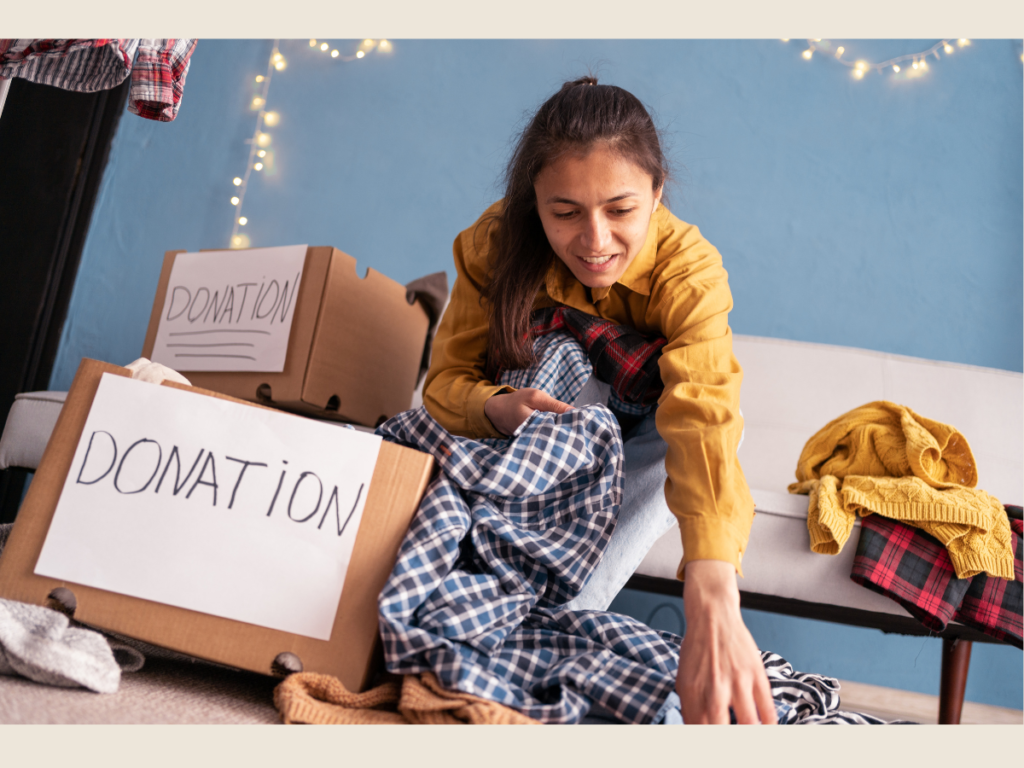
Here’s a simple four-path system that keeps “outflow” automatic:
1. Resell (Recover Value)
Platforms like Facebook Marketplace, OfferUp, or Craigslist make it easy to turn unused stuff into cash.
💬 One Simple Coffers reader sold 23 unused household items for $280 last spring—enough to cover her entire power bill.
💡 Quick Tip: Take daylight photos and post midweek evenings—demand is highest then.
2. Donate (Create Circulation)
Keep a labeled box by the door marked “Next Drop-Off.” When it fills up, it’s time.
Local shelters, thrift shops, and school drives all welcome gently used goods.
💡 Bonus: Donations may also qualify for tax deductions—always save receipts.
3. Repair or Repurpose (Extend Life)
Before buying new, check if it can be fixed. A $6 patch kit can save a $60 jacket.
If it’s beyond repair, repurpose creatively: jars become planters, shirts become cleaning rags.
For more low-cost creative reuse ideas, read The Frugal Home: DIY Fixes and Upgrades That Save You Money — it’s full of quick “fix, not replace” inspiration.
4. Share (Community Minimalism)
Borrow, lend, and co-own items that you don’t need daily—ladders, power tools, party supplies.
Community “tool libraries” or Buy Nothing groups reduce both waste and cost.
Sharing keeps costs low and helps you keep living with less long-term.
🗒️ Mindset Shift: Minimalist living isn’t about owning nothing—it’s about owning with intention and knowing exactly when to let go.
4️⃣ Buy-It-For-Life (BIFL) Matrix
Minimalism isn’t about cheap—it’s about buy it for life value.
Some things are worth investing in once if they’ll last for decades.
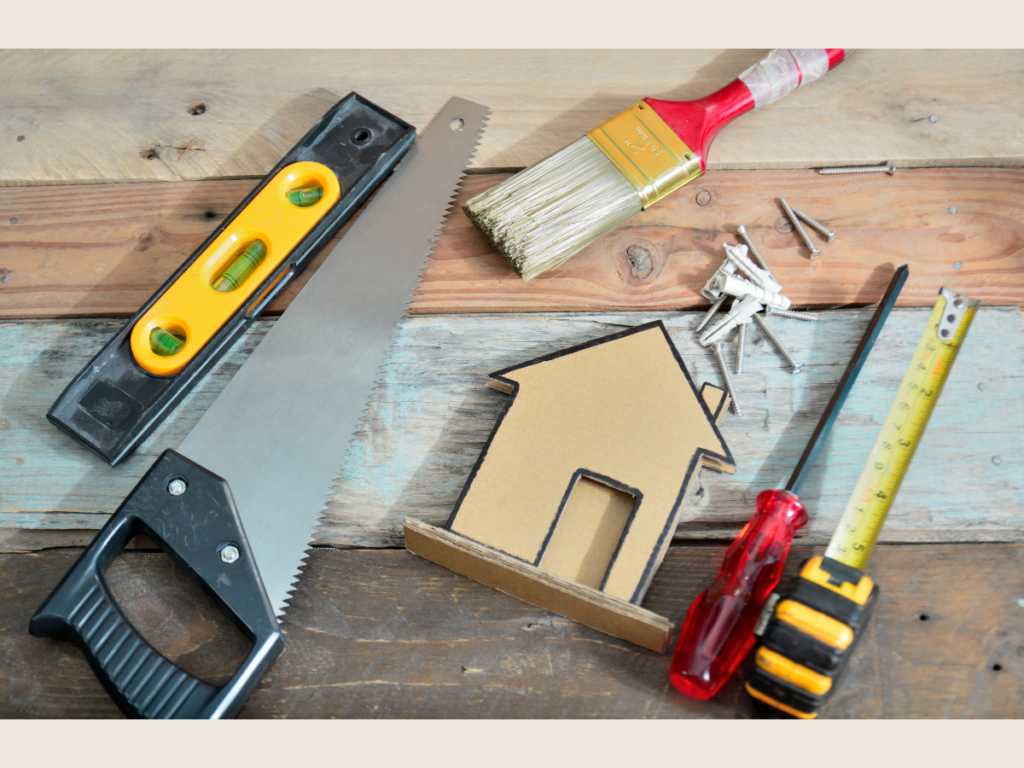
| Criteria | Question | Ideal Score (1–3) |
|---|---|---|
| Durability | Will it last 10+ years? | 3 |
| Repairability | Can I fix or replace parts easily? | 3 |
| Compatibility | Does it work with what I already own? | 2+ |
| Warranty | Is the company transparent about lifespan? | 2+ |
→ 9+ = Keepers.
→ 6–8 = Maybe later.
→ Below 6 = Walk away.
💬 Example: After burning through three plastic kettles, I bought a $40 stainless-steel one. Two years later it still looks new, and my “cost per use” is down to cents. That’s a true buy it for life win.
If a product can’t be repaired, it’s not buy it for life.
💡 Quick Tip: Search “[product] repair video” before buying. If you can’t find any tutorials, it’s not BIFL-worthy.
⚠️ Common Mistakes
- Confusing price with quality. Expensive ≠ durable—research before trusting the label.
- Ignoring serviceability. If it needs special tools or parts only the manufacturer sells, skip it.
- Replacing for style, not function. Upgrade when it breaks, not when trends shift.
5️⃣ 7-Day Physical Declutter Sprint (No Digital Detox Needed)
A one-week reset shows how quickly minimalist living lightens your routine.
No apps, no spreadsheets—just physical space reset.
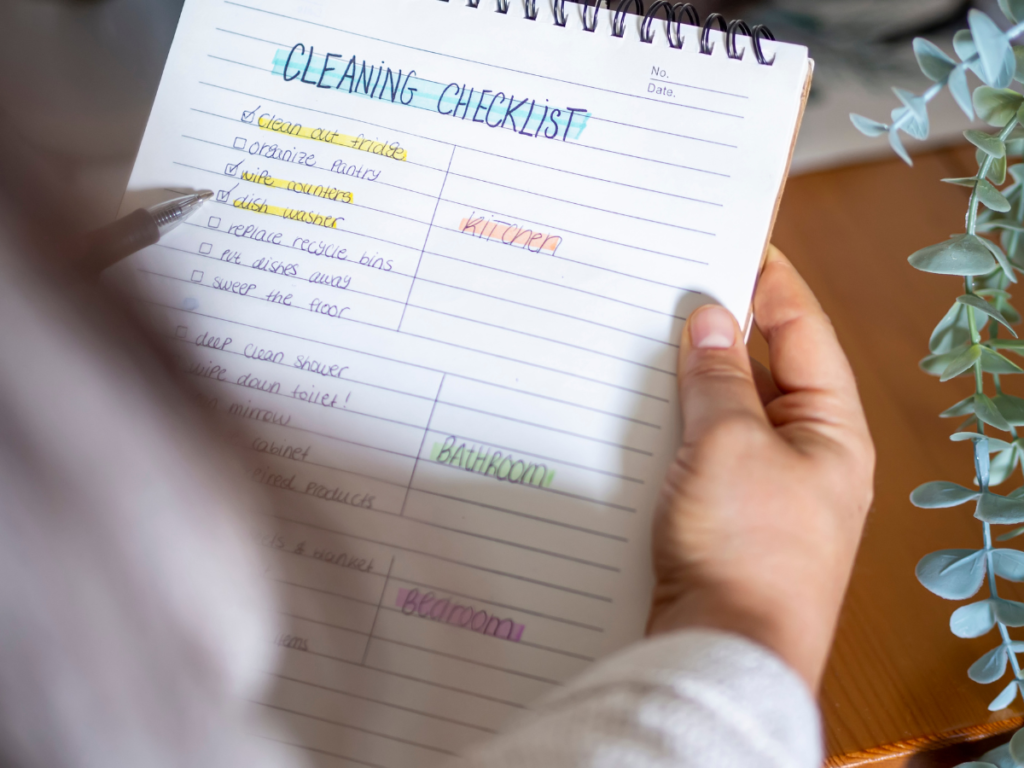
| Day | Focus Area | Goal |
|---|---|---|
| 1 | Entryway | Clear out shoes, mail, and extras. Make it welcoming again. |
| 2 | Kitchen | Remove duplicates, expired goods, and unused gadgets. |
| 3 | Closet | Eliminate 10 items you haven’t worn this year. |
| 4 | Bathroom | Simplify products; one per purpose. |
| 5 | Desk / Workspace | Keep only tools you use daily. |
| 6 | Cleaning Closet | Streamline gear; one of each essential tool. |
| 7 | Reflection | Re-walk your home. Feel the breathing room you created. |
💬 A reader told me she did this sprint and realized she owned four mops. After donating three, her laundry closet finally closed properly.
💡 Quick Tip: Take before-and-after photos—you’ll see progress you might not feel yet.
6️⃣ My Minimalist Turning Point
I once thought style made a home—now I know living with less gives me time back.
When I first started, I thought minimalism meant buying sleek furniture.
Now I know it’s about buying back time.
After downsizing my wardrobe, mornings felt calmer.
After decluttering the kitchen, grocery costs dropped 15%.
After unplugging unused gadgets, my electric bill shrank.
Minimalist living didn’t take things away—it gave me back control.
I no longer chase “more.” I maintain “enough.”
7️⃣ ⚠️ Common Minimalism Mistakes to Avoid
- Throwing away too fast. Decluttering emotionally leads to regret. Donate intentionally.
- Buying “aesthetic minimalism.” Beige furniture ≠ freedom. Minimalism starts with restraint, not retail.
- Over-organizing clutter. Storage bins don’t solve excess—they disguise it.
- Comparing your version to others. Minimalism isn’t uniform; it’s personal.
💡 Quick Tip: Ask, “Would I pack this if I moved tomorrow?” If not, it’s optional.
The goal is simple: spend less, live more—not spend to look minimal.
8️⃣ ❓ Minimalist Living FAQ
Q1. How do I start if my family isn’t on board?
Start with your own zone—your desk, closet, or car. Visible calm inspires others faster than words.
Q2. Isn’t minimalism just for people who can afford new things?
Not at all. True minimalist living is about using what you already have longer, not buying designer simplicity.
Q3. How do I stop clutter from coming back?
Set a quarterly “Exit Day.” Sell, donate, or repair five things. Make it a ritual, not a chore.
That rhythm helps you spend less, live more without thinking about it.
Q4. Can I still be sentimental and minimal?
Yes. Keep memories, not multiples—digitize photos, and save only one physical keepsake per category.
It’s still minimalist living if your memories have a clear, intentional place.
9️⃣ 🧾 30-Day Minimalist Reset Plan
| Week | Focus | Goal |
|---|---|---|
| 1 | Track where clutter hides | Log 3 “time drains” around your home |
| 2 | Declutter one capsule home zone | Simplify one room by 30% |
| 3 | Practice your Exit Strategy | Sell, donate, or repurpose 10 items |
| 4 | Review spending & BIFL list | Cut one impulsive purchase habit |
✅ By Day 30, you’ll notice lighter routines, quieter mornings, and at least one hour of extra free time each day.
🔟 Conclusion: Owning Less, Gaining More
Minimalism isn’t about deprivation—it’s about direction.
Choose minimalist living not for less life, but for more room to be you.
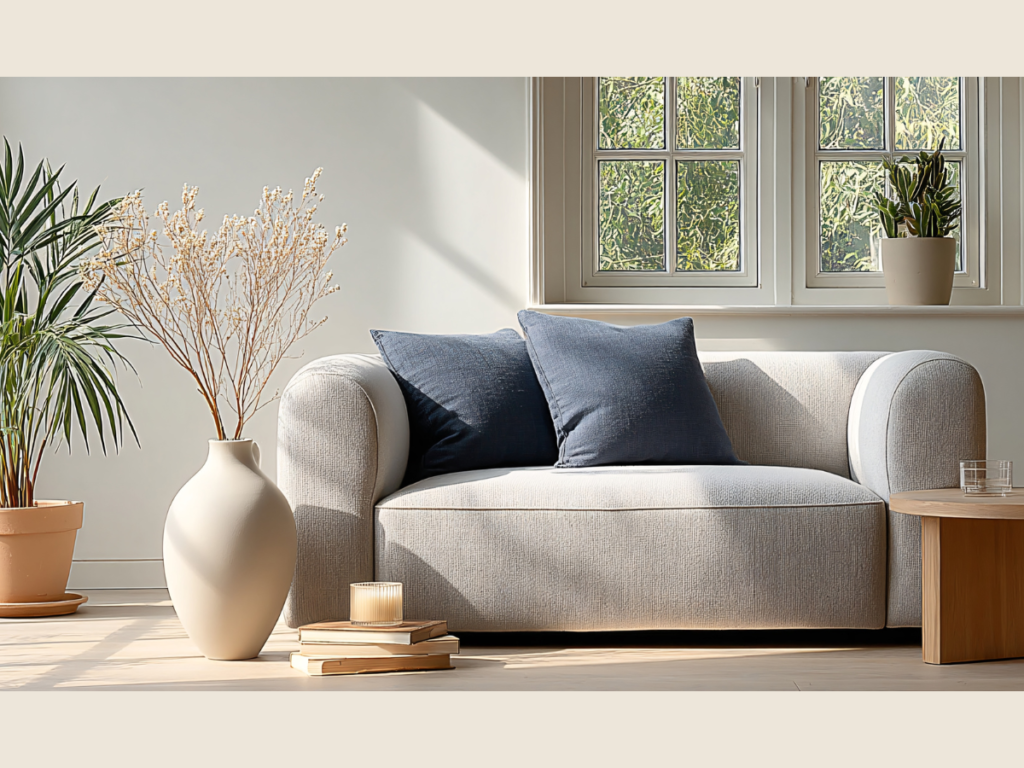
Every object you release gives back time, energy, or money.
Start with one drawer, one shelf, one small step.
Because when you’re living with less, you make space for what actually matters. 🌿

